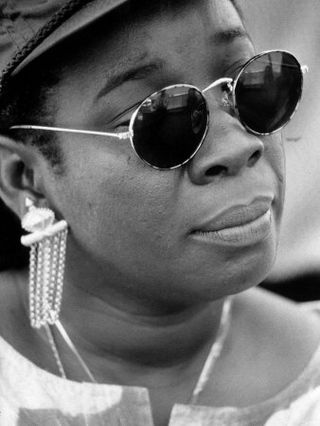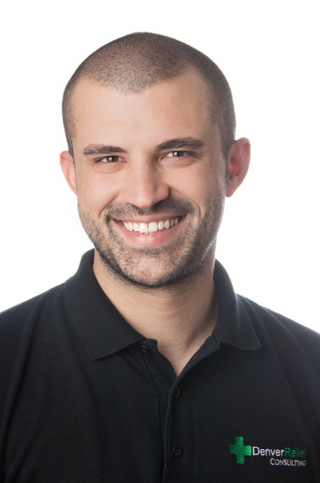
While recreational use, possession and trade of non-medicinal drugs described by the Opium Law are all technically illegal under Dutch law, official policy since the late 20th century has been to openly tolerate all recreational use while tolerating possession and trade under certain circumstances. This pragmatic approach was motivated by the idea that a drug-free Dutch society is unrealistic and unattainable, and efforts would be better spent trying to minimize harm caused by recreational drug use. As a result of this gedoogbeleid, the Netherlands is typically seen as much more tolerant of drugs than most other countries.

Alfarita Constantia "Rita" Marley OJ OD is a Cuban born Jamaican singer-songwriter and entrepreneur. She is the widow of reggae legend Bob Marley. Along with Marcia Griffiths and Judy Mowatt, Rita was a member of the reggae vocal group the I Threes, the backing vocalists for Bob Marley and the Wailers.
Students for Sensible Drug Policy (SSDP) is an international nonprofit organization advocacy and education organization with focus on drug policy, war on drugs, marijuana legalization, psychedelics, juvenile justice and youth rights, drug decriminalization, criminal justice reform. SSDP promotes global youth civic engagement as a tool in reforming drug policy.

The war on drugs is the policy of a global campaign, led by the United States federal government, of drug prohibition, military aid, and military intervention, with the aim of reducing the illegal drug trade in the United States. The initiative includes a set of drug policies that are intended to discourage the production, distribution, and consumption of psychoactive drugs that the participating governments, through United Nations treaties, have made illegal.
The Law Enforcement Action Partnership (LEAP), formerly Law Enforcement Against Prohibition, is a U.S.-based nonprofit organization group of current and former police, judges, prosecutors, and other criminal justice professionals who use their expertise to advance drug policy and criminal justice solutions that enhance public safety. The organization is modeled after Vietnam Veterans Against the War. As of April 2017, they have more than 180 representatives around the world who speak on behalf of over 5,000 law enforcement members and 100,000 supporters.

Robert Nesta Marley was a Jamaican singer, songwriter, and guitarist. Considered one of the pioneers of reggae, he fused elements of reggae, ska and rocksteady and was renowned for his distinctive vocal and songwriting style. Marley increased the visibility of Jamaican music worldwide and made him a global figure in popular culture. He became known as a Rastafarian icon, and he infused his music with a sense of spirituality. Marley is also considered a global symbol of Jamaican music and culture and identity and was controversial in his outspoken support for democratic social reforms. Marley also supported the legalisation of cannabis and advocated for Pan-Africanism. In 1976, Marley survived an attempted assassination in his home, which was believed to be politically motivated.

In the United States, the non-medical use of cannabis is legalized in 24 states and decriminalized in 7 states, as of November 2023. Decriminalization refers to a policy of reduced penalties for cannabis offenses, typically involving a civil penalty for possessing small amounts, instead of criminal prosecution or the threat of arrest. In jurisdictions without penalty the policy is referred to as legalization, although the term decriminalization is sometimes used for this purpose as well.
Khalil-ur-Rehman Ramday is a Pakistani philanthropist and former jurist who served as senior judge of the Supreme Court of Pakistan from 2002 to 2010.

Canada's drug regulations are measures of the Food and Drug Act and the Controlled Drugs and Substances Act. In relation to controlled and restricted drug products, the Controlled Drugs and Substances Act establishes eight schedules of drugs and new penalties for the possession, trafficking, exportation and production of controlled substances as defined by the Governor-in-Council. Drug policy of Canada has traditionally favoured punishment for the smallest of offences, but this convention was partially broken in 1996 with the passing of the Controlled Drugs and Substances Act.

Malawian cannabis, particularly the strain known as Malawi Gold, is internationally renowned as one of the finest sativa strains from Africa. According to a World Bank report it is among "the best and finest" marijuana strains in the world, generally regarded as one of the most potent psychoactive pure African sativas. The popularity of this variety has led to such a profound increase in marijuana tourism and economic profit in Malawi that Malawi Gold is listed as one of the three "Big C's" in Malawian exports: chambo, chombe (tea), and chamba (cannabis).

Alfred D. Hughes Unit is a prison for men of the Texas Department of Criminal Justice located in Gatesville, Texas. The prison is named after Al Hughes who served as a chairperson on the Texas Board of Corrections from 1985 to 1989.
Gonzales v. Raich, 545 U.S. 1 (2005), was a decision by the U.S. Supreme Court ruling that, under the Commerce Clause of the U.S. Constitution, Congress may criminalize the production and use of homegrown cannabis even if state law allows its use for medicinal purposes.
Jesse Stout is an American attorney and drug policy reform activist. He practiced business law for the cannabis industry with Greenbridge Corporate Counsel. He was appointed by the San Francisco Board of Supervisors to serve as a member of the San Francisco Cannabis State Legalization Task Force and its successor body the San Francisco Cannabis Oversight Committee. He also recruited employees for cannabis companies, through THC Staffing Group.

Marley Natural is the official cannabis brand of Bob Marley, developed by his estate in conjunction with the private equity firm Privateer Holdings, which develops cannabis industry brands. The brand is based in Seattle, Washington.

Kayvan Khalatbari is an Iranian-American entrepreneur; he was a mayoral candidate in Denver, Colorado, in 2019.

Kyle Kazan is an American businessman who is the co-founder, chairman, and CEO of Glass House Group. He is also a founder and chairman of Beach Front Property Management, Inc. and co-founder and managing member of Beach Front Properties, LLC. Kazan has also served as a special education teacher at LAUSD and a police officer at the Torrance Police Department.

Cannabis in Jamaica is illegal, but possession of small amounts was reduced to a petty offence in 2015. Cannabis is locally known as ganja, and internationally cannabis consumption plays a prominent role in the nation's public image, being tied to cultural touchstones such as Rastafari and reggae music. Ganja tourists have been welcomed in the 21st century.

Women in law describes the role played by women in the legal profession and related occupations, which includes lawyers, paralegals, prosecutors, judges, legal scholars, law professors and law school deans.

The Cannabis Act (C-45) of June, 2018 paved the way for the legalization of cannabis in Canada on 17 October 2018. Police and prosecution services in all Canadian jurisdictions are currently capable of pursuing criminal charges for cannabis marketing without a licence issued by Health Canada. The Supreme Court of Canada has held that the federal Parliament has the power to criminalize the possession of cannabis and that doing so does not infringe upon the Canadian Charter of Rights and Freedoms. The Ontario Court of Appeal and the Superior Court of Ontario have, however, held that the absence of a statutory provision for medical marijuana is unconstitutional, and to that extent the federal law is of no force and/or effect if a prescription is obtained. The recreational use of cannabis has been legalized by the federal government, and took effect on 17 October 2018.

The Dagga Couple or DC is a pro-cannabis lobbyist organisation from South Africa founded by Julian Stobbs and Myrtle Clarke after the two were arrested for the possession and dealing in the substance in 2010. Rather than plead guilty, the couple decided instead to sue seven sectors of government that maintained and enforced the policy of cannabis prohibition in the country resulting in what has been described locally as the Trial of the Plant in 2017.













